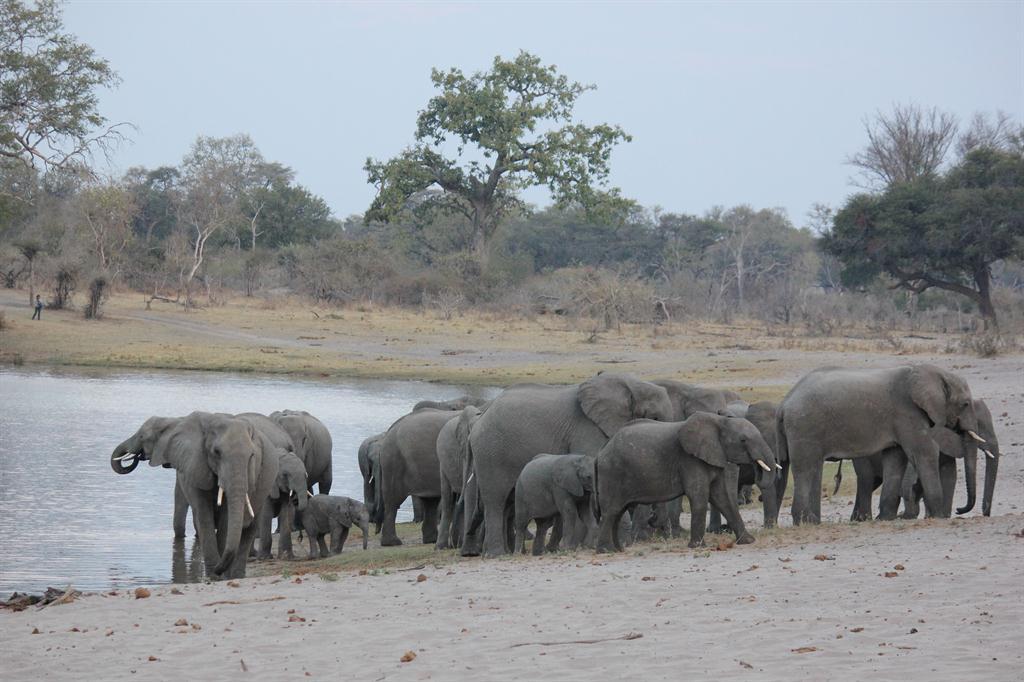Controversy grows over elephant auction
ELLANIE SMIT
WINDHOEK
It has been a year since Namibia first announced it would put 170 elephants on auction and since then the controversy surrounding the matter has only grown.
The environment ministry announced in August 2020 that it would capture 57 elephants for sale to undisclosed buyers, adding that 42 of them would be exported.
News of the auctioning of 170 elephants broke in December 2020 and caused an uproar.
However, despite the opposition, the ministry went ahead with the elephant auction and sold the 57 elephants for N$5.9 million.
What has made matters worse is the ministry’s refusal to release any further details on the issue, including the names of the international buyers or even to what countries the elephants will be exported.
Even though this is a public procurement process, the ministry has remained adamant that the successful bidders will only be announced “at the end of the process.”
This has led to much speculation and several complaints by conservation groups to the Convention on International Trade in Endangered Species (Cites) that Namibia is not complying with international laws.
According to the Pro Elephant Network (PREN), several elephant family groups have already been captured in Namibia and are in quarantine, ready for export.
It says these elephants will most likely be exported to the United Arab Emirates (UAE), with a South African wildlife trader involved.
“The UAE does not have an in-situ population of elephants. It has already imported wild elephants from Namibia who are kept in captivity,” it says.
“The elephants are destined for two captive locations in the United Arab Emirates,” PREN states.
Legal route
Now, a South African environmental law firm, Cullinan and Associates, has stepped in to make a legal case.
A memorandum submitted to the UAE Cites, the Cites secretary-general and relevant stakeholders concludes that it is illegal for “the Namibia Cites to issue an export permit under either Appendix I or Appendix II of Cites”.
It further says that it is illegal for a country outside of the range states for the African elephant to issue an import permit.
The memorandum explains that Appendix II does not apply to export, given that wild elephants are being exported out of their range and therefore does not meet the specific non-detriment criterion in Article III for trade in Appendix I species.
Namibia recently confirmed to Cites that its trade in live African elephants will take place under Article III of the Convention and that it will fully comply with its requirements.
Several ecological and scientific arguments have been made by renowned conservationists who said that wild-caught elephants from Namibia or other South African nations, when transported outside their range, will in no way promote the conservation of the African elephant population.
WINDHOEK
It has been a year since Namibia first announced it would put 170 elephants on auction and since then the controversy surrounding the matter has only grown.
The environment ministry announced in August 2020 that it would capture 57 elephants for sale to undisclosed buyers, adding that 42 of them would be exported.
News of the auctioning of 170 elephants broke in December 2020 and caused an uproar.
However, despite the opposition, the ministry went ahead with the elephant auction and sold the 57 elephants for N$5.9 million.
What has made matters worse is the ministry’s refusal to release any further details on the issue, including the names of the international buyers or even to what countries the elephants will be exported.
Even though this is a public procurement process, the ministry has remained adamant that the successful bidders will only be announced “at the end of the process.”
This has led to much speculation and several complaints by conservation groups to the Convention on International Trade in Endangered Species (Cites) that Namibia is not complying with international laws.
According to the Pro Elephant Network (PREN), several elephant family groups have already been captured in Namibia and are in quarantine, ready for export.
It says these elephants will most likely be exported to the United Arab Emirates (UAE), with a South African wildlife trader involved.
“The UAE does not have an in-situ population of elephants. It has already imported wild elephants from Namibia who are kept in captivity,” it says.
“The elephants are destined for two captive locations in the United Arab Emirates,” PREN states.
Legal route
Now, a South African environmental law firm, Cullinan and Associates, has stepped in to make a legal case.
A memorandum submitted to the UAE Cites, the Cites secretary-general and relevant stakeholders concludes that it is illegal for “the Namibia Cites to issue an export permit under either Appendix I or Appendix II of Cites”.
It further says that it is illegal for a country outside of the range states for the African elephant to issue an import permit.
The memorandum explains that Appendix II does not apply to export, given that wild elephants are being exported out of their range and therefore does not meet the specific non-detriment criterion in Article III for trade in Appendix I species.
Namibia recently confirmed to Cites that its trade in live African elephants will take place under Article III of the Convention and that it will fully comply with its requirements.
Several ecological and scientific arguments have been made by renowned conservationists who said that wild-caught elephants from Namibia or other South African nations, when transported outside their range, will in no way promote the conservation of the African elephant population.




Comments
Namibian Sun
No comments have been left on this article